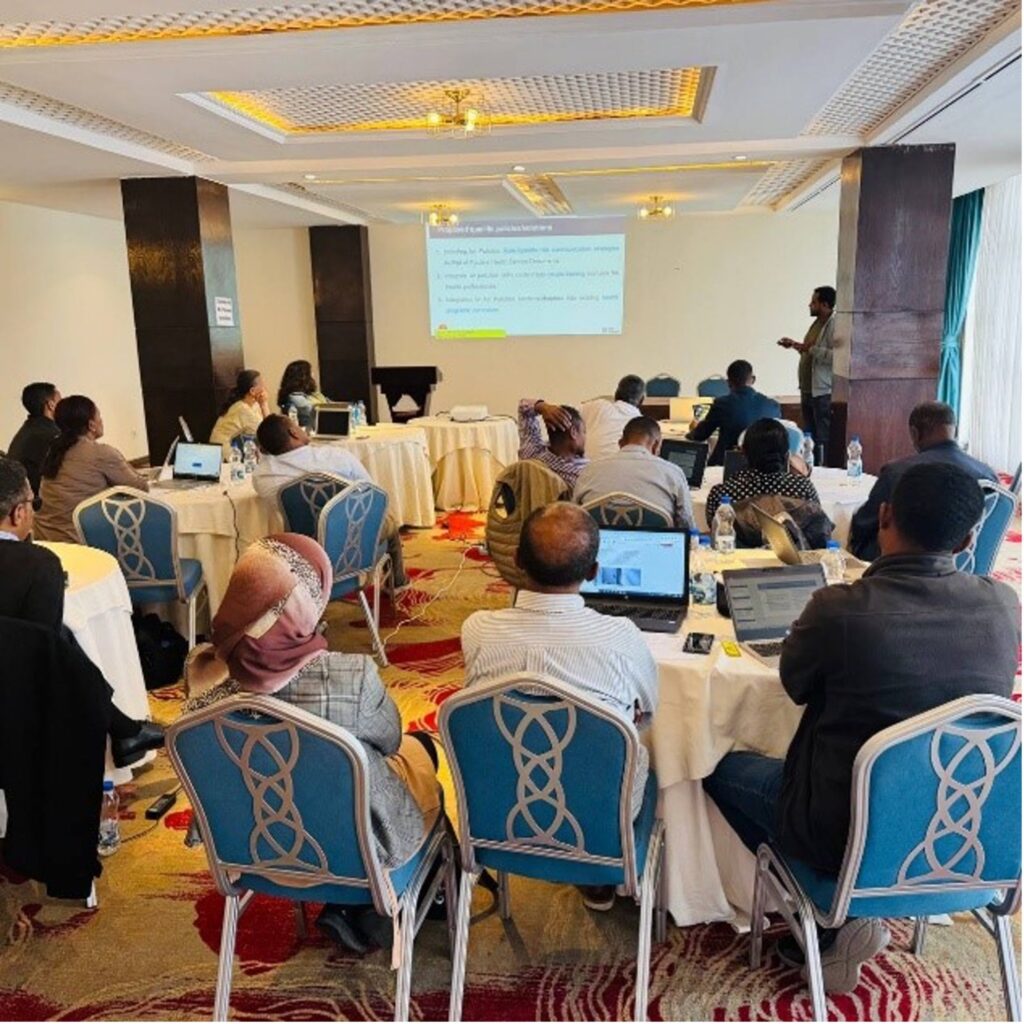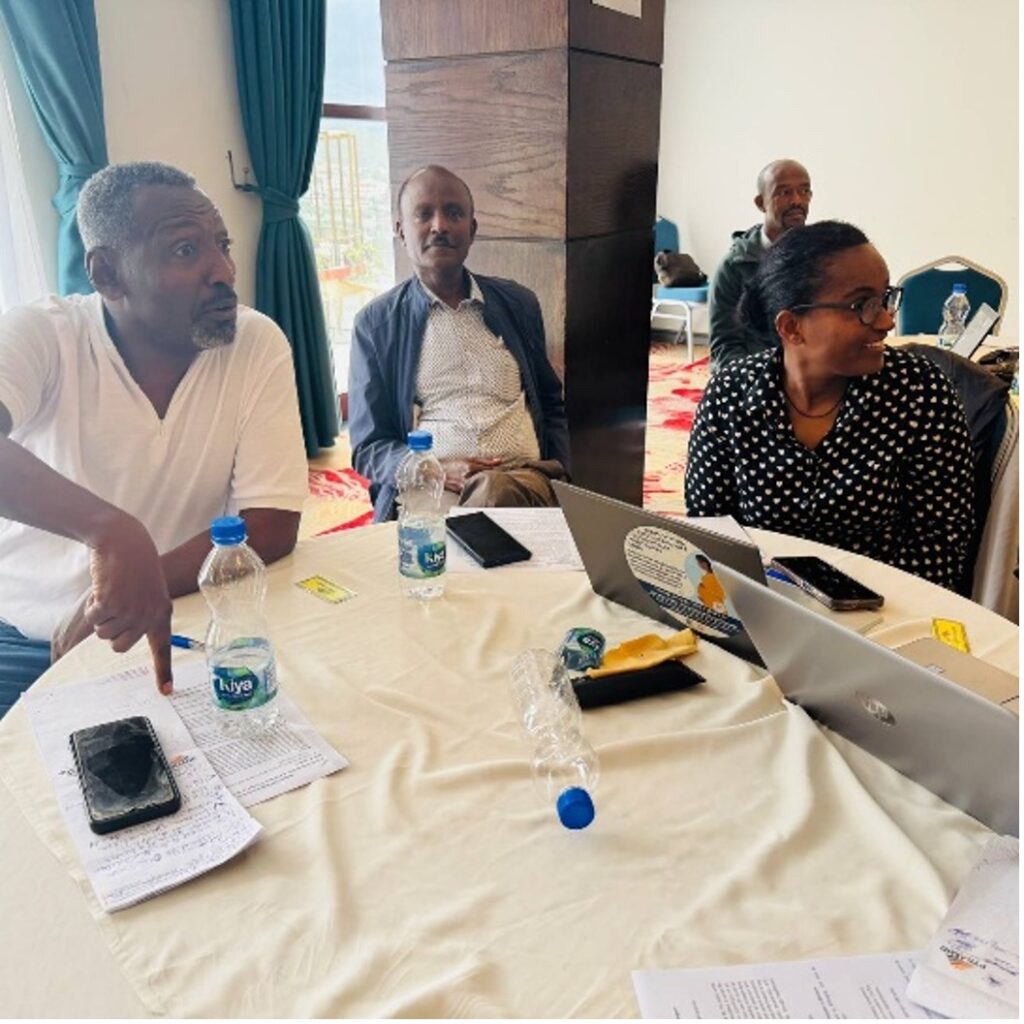Vital Strategies, with endorsement by H.E. Dr. Dereje Duguma, State Minister of Health, achieved a major milestone with the establishment of the ENABLE Project’s Clean Air Policy Accelerator. This initiative works to strengthen clean air action within the Ethiopian health system.
Six months into the project, key stakeholders convened at a Clean Air Policy Accelerator workshop, with the primary objectives to present draft policy briefs and receive feedback on how to best integrate clean air action into routine public health practice.

Over three days, participants provided valuable feedback on the proposed interventions and legal methods, highlighting several crucial elements for consideration. Much of the discussion focused on household energy—a leading source of air pollution in Ethiopia, where over 90% of households use solid fuels, including wood and charcoal, for cooking.

One of the policy proposals was to revise the definitions of household air pollution indicators. Mohammed Sulleman, Public Health Promotion and Diseases Prevention Directorate Director at Harari Region Health Bureau, called this “a key development we have been waiting so long for, and we welcome the current initiative.” Under the new definition, information on the specific cooking fuel types used at the household level would be collected, which would provide a clearer picture of pollution sources and health risks.
“Household clean cooking fuel access necessitates the collaboration of various sectors,” said Getu Bisa, Public Health Promotion and Diseases Prevention Directorate Director at Addis Ababa City Administration. “Alongside raising awareness, the health sector should actively engage with other relevant sectors and advocate for clean household fuel use.”
Tibeso Bezabih, the Legal Department Director at the Ministry of Health, said “we should determine the regulatory scope for household air pollution and establish strategies for enforcing health-based standards. Furthermore, it is essential to compile a document with synthesized and compelling evidence on the need for regulation.”

Overall, the participants praised how timely the clean air policy changes were. They also stressed the need to update household air pollution exposure indicators, refine the air pollution-related contents for dissemination, develop cost-effective strategies that don’t increase the workload for health workers, and build stronger partnerships between the health sector and other government and civil society sectors
When discussing the need to raise awareness about the health benefits of clean air more broadly, Dr. Aderajew Mekonnen, Health System Research Directorate Director at EPHI, encouraged “options that involve a clear communication with decision-makers to accelerate the process of implementing clean air action within the structure of the health system and reach millions of households.”
Dr. Sumi Mehta, Vice President of Environment, Climate and Urban Health at Vital Strategies, concluded by saying, “while air pollution is among the top five causes of death in Ethiopia, with levels three to five times higher than the WHO Air Quality Guidelines, progress is possible and within reach.” She went on to applaud the ENABLE Project’s team for highlighting the intersection of clean air and public health. “By working together, this project can bring cleaner air and stronger health systems to all Ethiopians.”
Next Steps
The Policy Accelerator team will now finalize the draft policy briefs based on the feedback gathered during the workshop and develop the policy adoption plan. The team will promptly move to act on the identified short-term opportunities within the Ministry of Health to start integrating clean air into routine public health practice in Ethiopia.
Vital Strategies extends a warm thank you to the workshop attendees including Mr. Mohammed Sulleman, Public Health Promotion and Diseases Prevention Directorate Director Harari Region Health Bureau; Mr. Getu Bisa, Public Health Promotion and Diseases Prevention Directorate Director at Addis Ababa City Administration Health Bureau; Dr. Aderajew Mekonnen, Health System Research Directorate Director at EPHI; and Mr. Tibeso Bezabih, Legal Department Director at the Ministry of Health.
Vital Strategies are proud partners of the ENABLE Project and will provide technical assistance throughout the Policy Accelerator process.